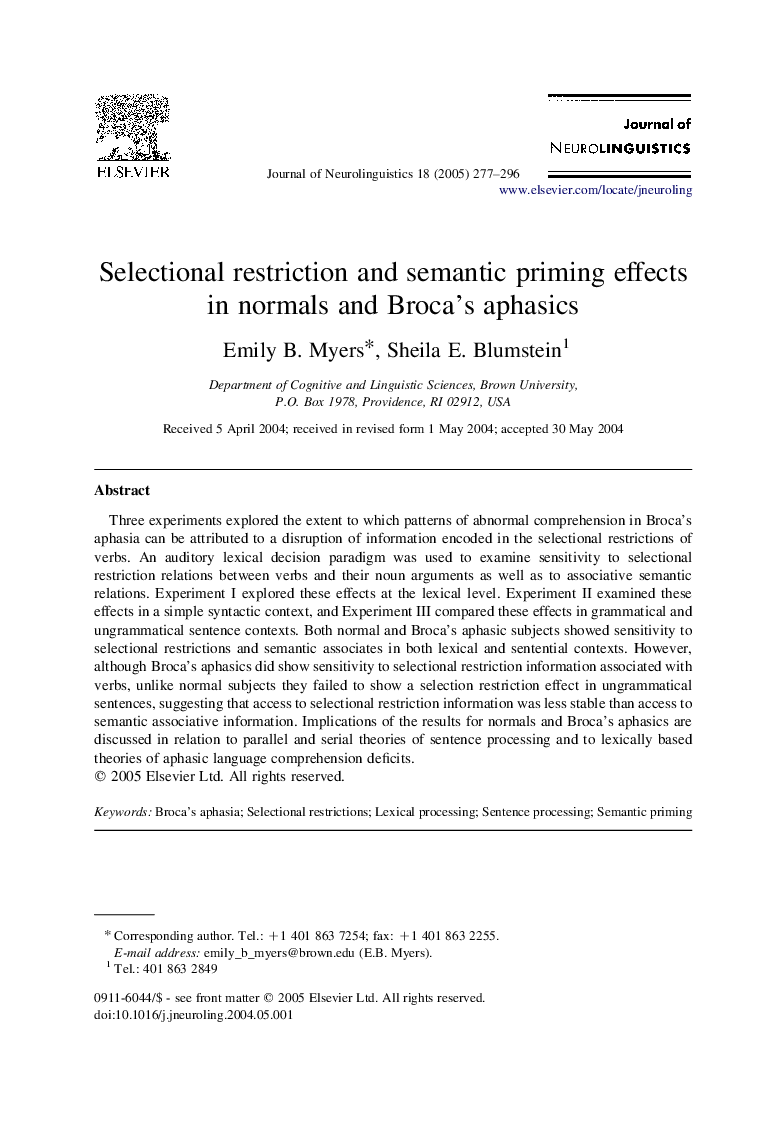| Article ID | Journal | Published Year | Pages | File Type |
|---|---|---|---|---|
| 10448860 | Journal of Neurolinguistics | 2005 | 20 Pages |
Abstract
Three experiments explored the extent to which patterns of abnormal comprehension in Broca's aphasia can be attributed to a disruption of information encoded in the selectional restrictions of verbs. An auditory lexical decision paradigm was used to examine sensitivity to selectional restriction relations between verbs and their noun arguments as well as to associative semantic relations. Experiment I explored these effects at the lexical level. Experiment II examined these effects in a simple syntactic context, and Experiment III compared these effects in grammatical and ungrammatical sentence contexts. Both normal and Broca's aphasic subjects showed sensitivity to selectional restrictions and semantic associates in both lexical and sentential contexts. However, although Broca's aphasics did show sensitivity to selectional restriction information associated with verbs, unlike normal subjects they failed to show a selection restriction effect in ungrammatical sentences, suggesting that access to selectional restriction information was less stable than access to semantic associative information. Implications of the results for normals and Broca's aphasics are discussed in relation to parallel and serial theories of sentence processing and to lexically based theories of aphasic language comprehension deficits.
Related Topics
Life Sciences
Neuroscience
Cognitive Neuroscience
Authors
Emily B. Myers, Sheila E. Blumstein,
